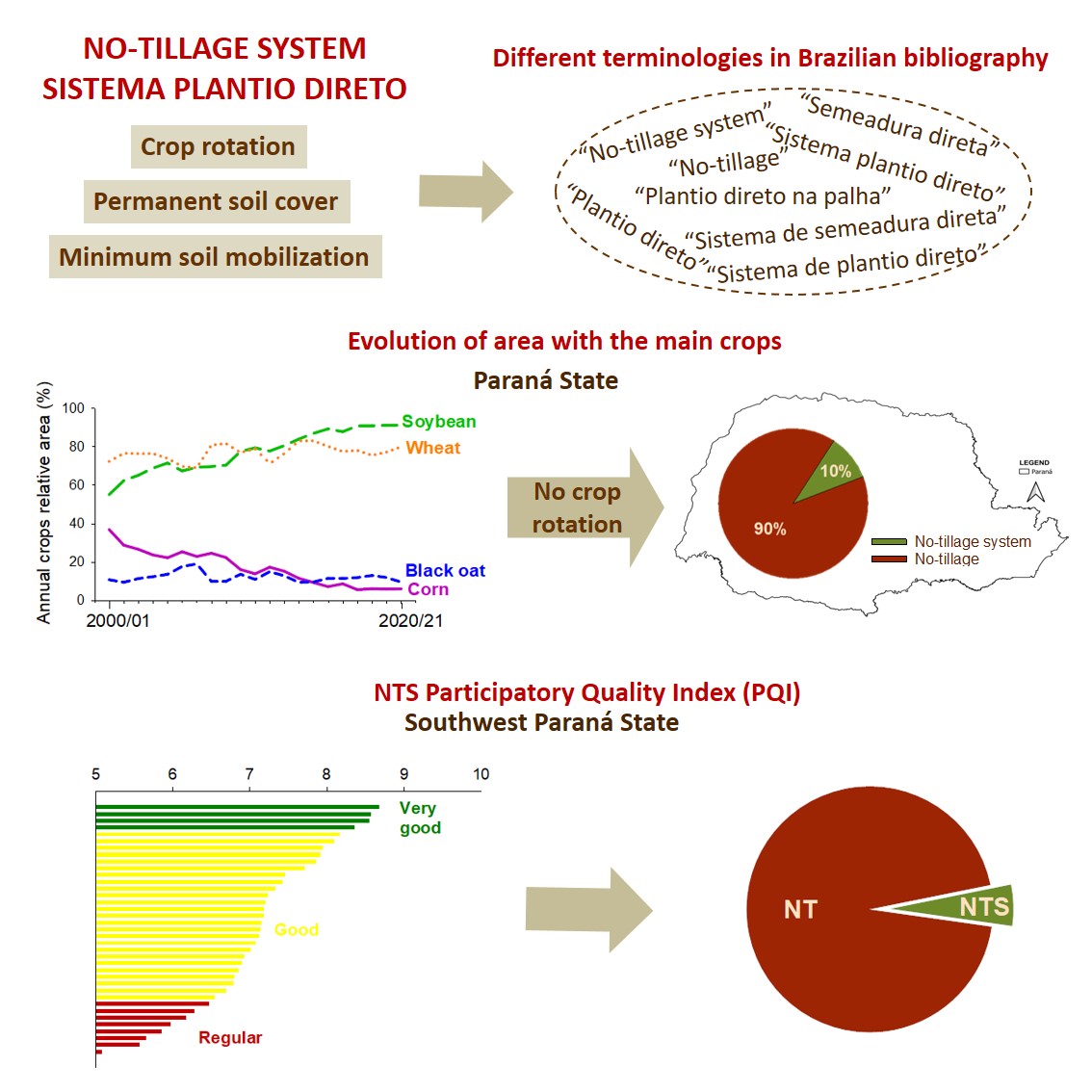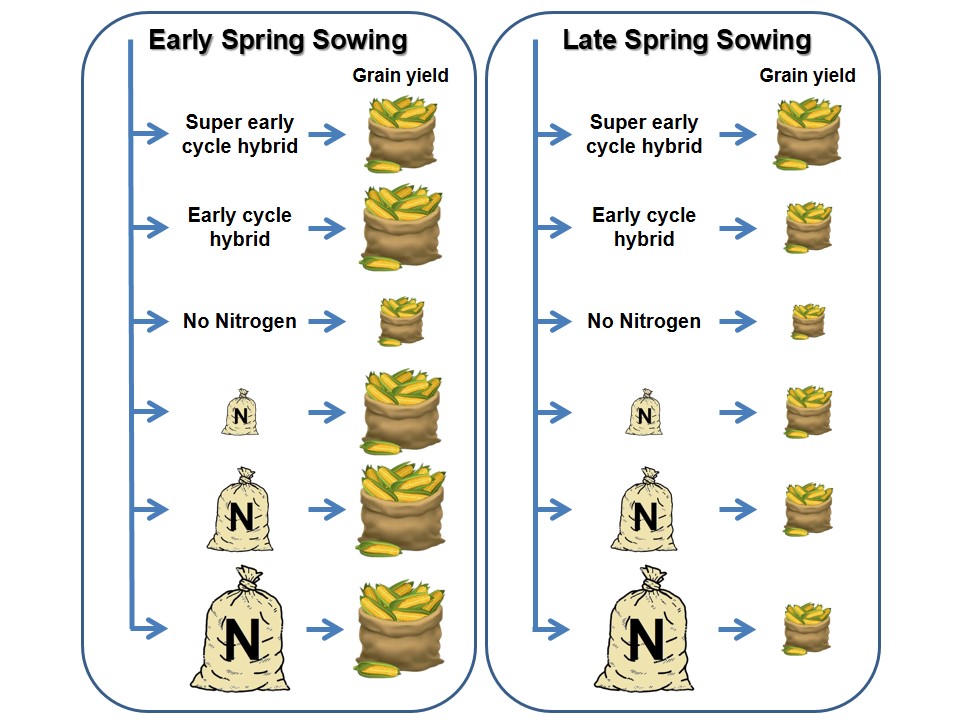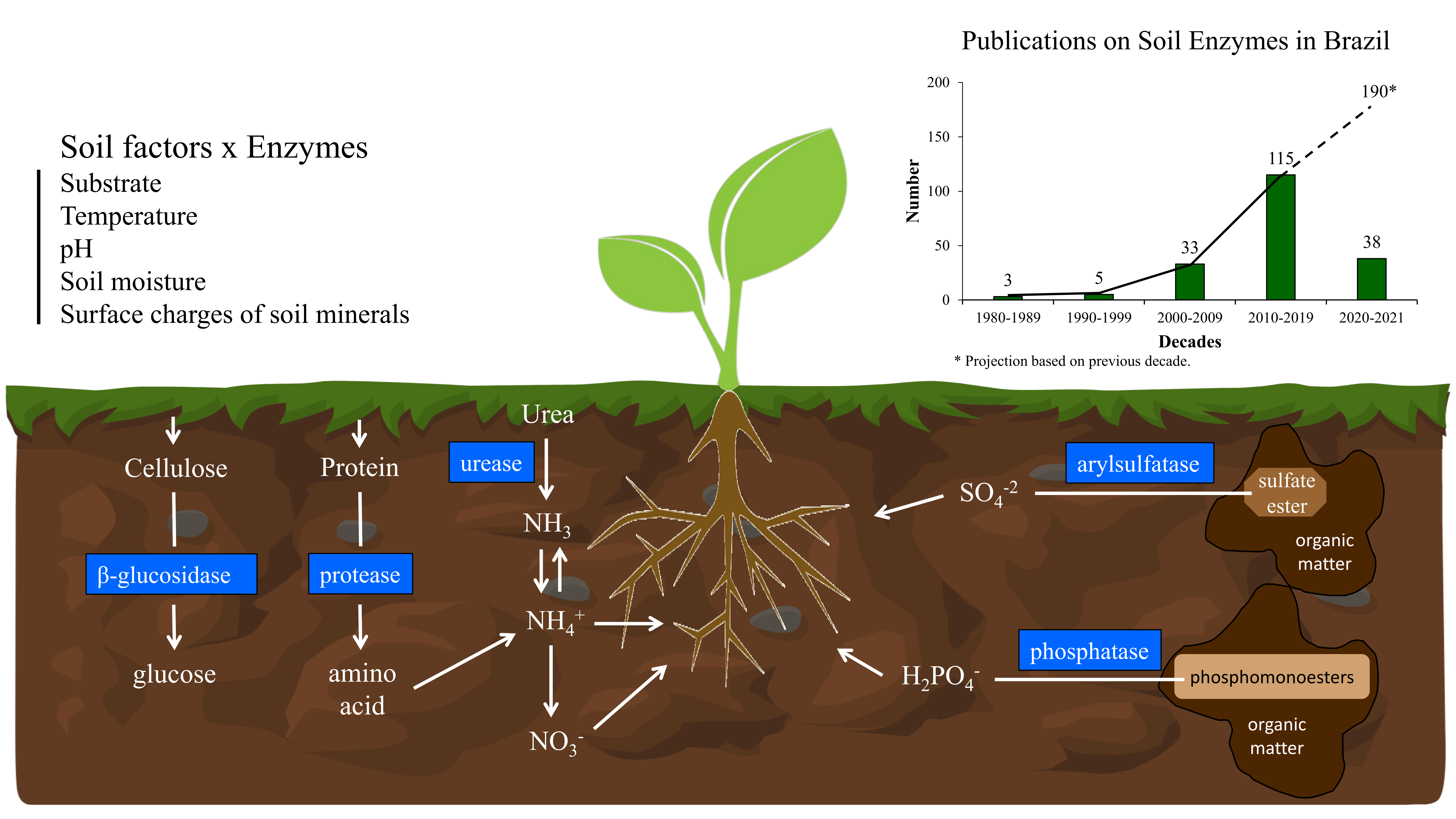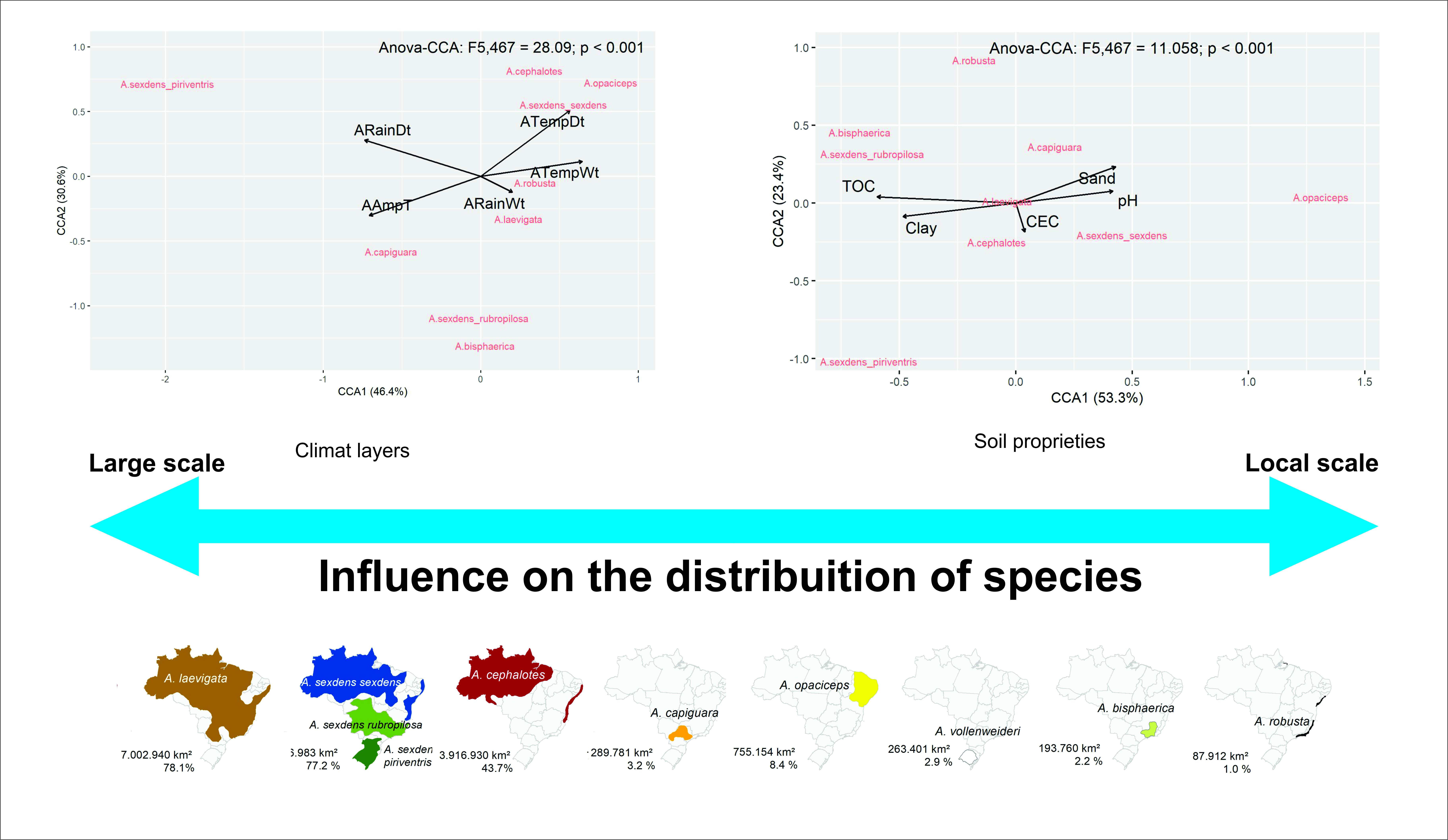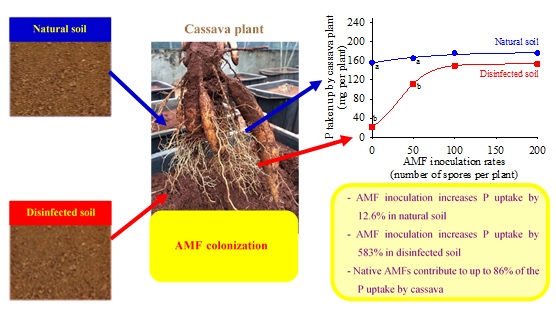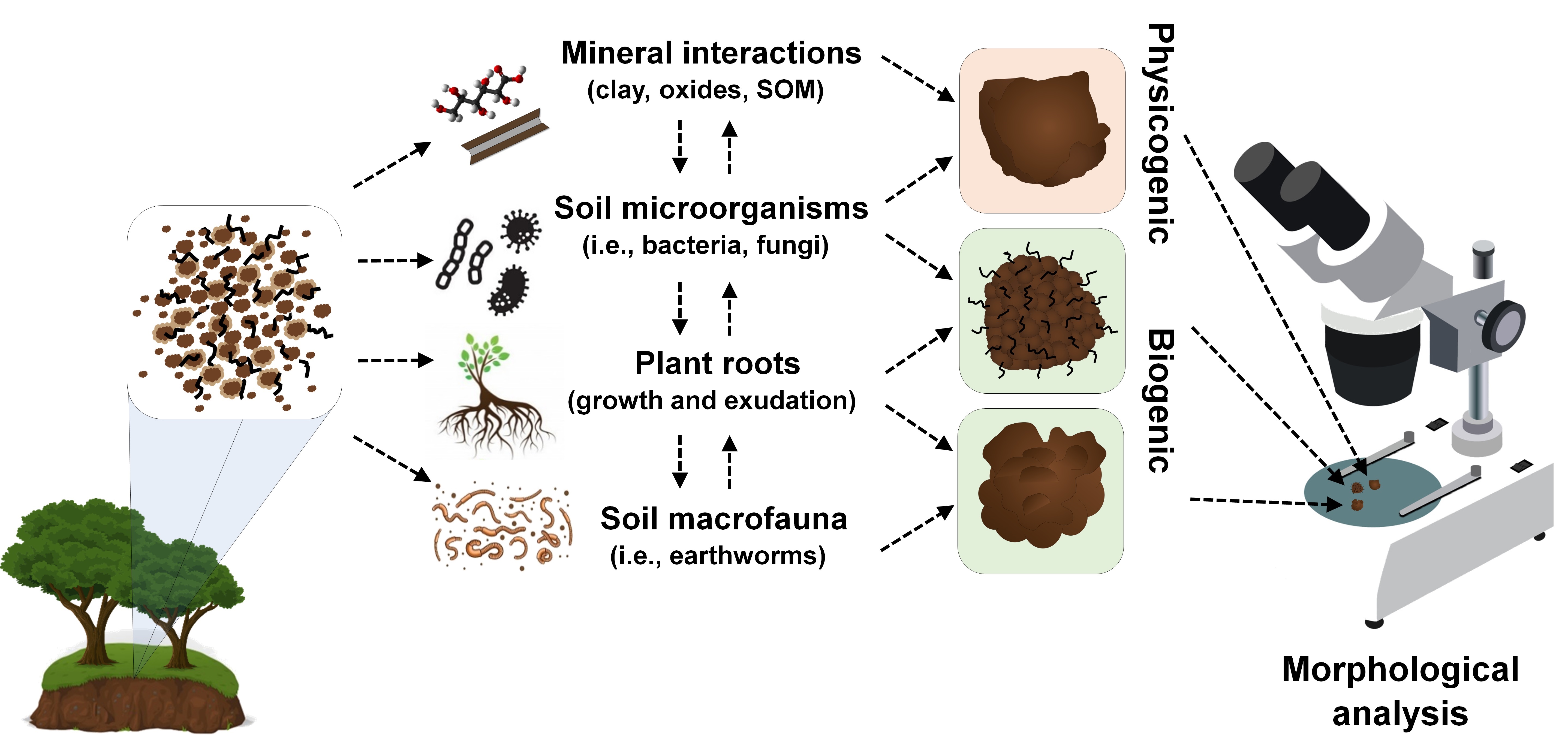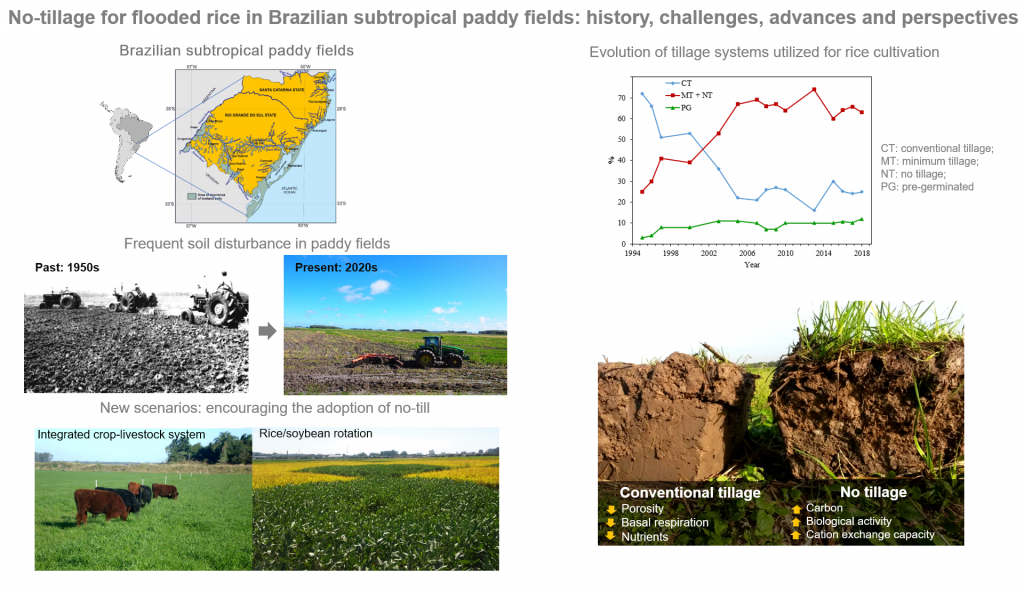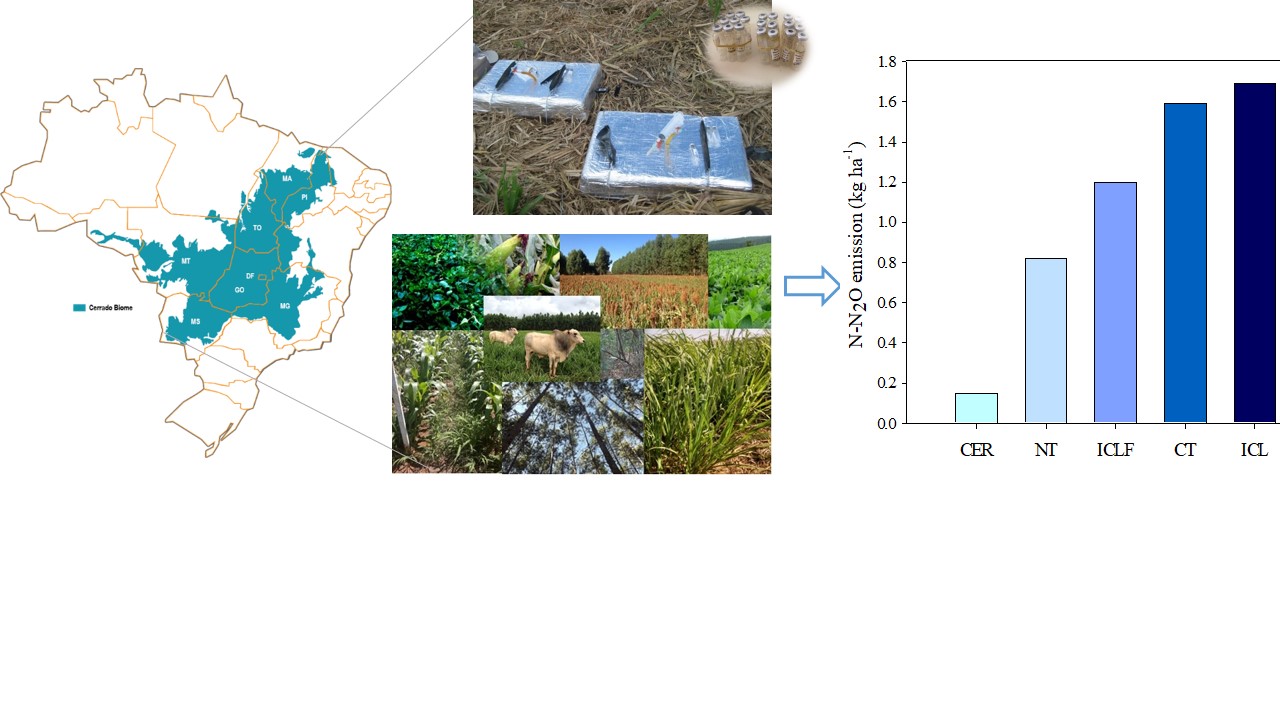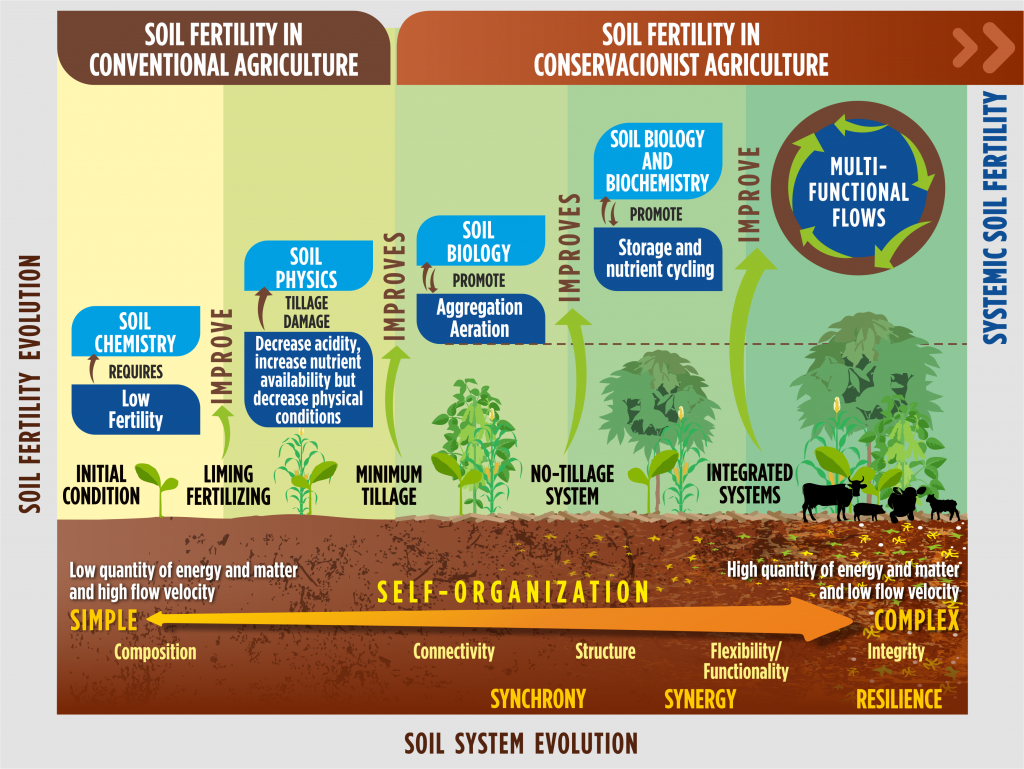Adoption of the no-tillage system in Paraná State: A (re)view
13/jan/2022
ABSTRACT The concept of a no-tillage system (NTS), or “Sistema Plantio Direto,” was established in Brazil from the evolution of no-tillage (NT) or “Plantio Direto,” given the edaphoclimatic conditions and the need to promote chemical, physical and biological improvements in cultivated soils. While “Plantio Direto” is a conservationist practice, “Sistema Plantio Direto” presents itself as an agricultural production system based on the simultaneous adoption of minimum soil disturbance, maintenance of permanent soil cover and crop rotation. This study reviews the […]
Nitrogen use efficiency and grain yield of corn hybrids as affected by nitrogen rates and sowing dates in subtropical environment
13/jan/2022
ABSTRACT Delay of sowing date in subtropical environments with long growing seasons can modify the yield response of corn hybrids to nitrogen (N) fertilization. This study evaluated the effects of the sowing time, and N top-dress rate on corn hybrids’ yield and N-use efficiency with different cycles. Two field experiments were carried out in subtropical environment of southern Brazil. The following factors were investigated: corn hybrids (AG9025, super early cycle and P30F53, early cycle), sowing times (early and late spring), […]
Brazilian scenario of inoculant production: A look at patents
10/jan/2022
ABSTRACT Technological advances have demonstrated the need for intellectual property rights, and patent granting is one of its most widespread forms. This includes the protection of inoculant formulations for agriculture, in which Brazil is a leader. This study aimed to analyze the number of patents for formulations of biological inoculants for agriculture in Brazil and the microorganisms used. An advanced search was performed in the National Institute of Industrial Property database, using the title and abstract fields. The indexers included […]
Contribution of enzymes to soil quality and the evolution of research in Brazil
30/nov/2021
ABSTRACT Extracellular soil enzymes are fundamental for the functioning of ecosystems. Several processes in the soil depend on the activity of these enzymes, including plant decomposition, soil organic matter formation/mineralization, and nutrient cycling. Moreover, extracellular enzyme activity occurs in the soil and is therefore influenced by environmental factors. Due to the high sensitivity to these factors, extracellular enzymes are used for monitoring soil quality. This review aimed to present the main contributions of soil enzymes to agriculture, emphasizing the dynamics […]
Interplays between Atta ants (Formicidae: Attini), soils and environmental properties in the Brazilian Neotropics: a preliminary assessment
30/nov/2021
ABSTRACT Leaf-cutting ants are the most important herbivore in the neotropics, represent active agents of pedobioturbation, and are regarded as ecosystem engineers. These ants have a wide variety of ecological functions, such as pollination, seed dispersal, and tree-growing control. Despite this importance, little is known on their distribution in relation to possible soil and environmental conditions that affect Atta ants occurrence. This study aimed to spatialize the main occurrences of Atta species in the Brazilian territory and evaluate the main […]
Growth and phosphorus uptake by cassava in P-deficient soil in response to mycorrhizal inoculation
30/nov/2021
ABSTRACT Phosphorus (P) is one of the most difficult nutrients for plants to acquire because of its low content in the soil solution. Cassava (Manihot esculenta Crantz) has a thick and sparse absorbent root system; therefore, it is dependent on its association with arbuscular mycorrhizal fungi (AMF) for P acquisition from the soil. Thus, inoculation of cassava with AMF can improve the development of this root crop. This study evaluated the effects of soil disinfection (disinfected vs. natural) and the […]
Biogenic and physicogenic aggregates: formation pathways, assessment techniques, and influence on soil properties
24/nov/2021
ABSTRACT: The soil particles can be gathered through physical and/or chemical processes in association with the biological activity, leading to the formation of aggregates. Soil aggregates has several functions in the soil, increasing macroporosity and water circulation – consequently reducing soil erosion and mechanical resistance to root growth, contributing to greater fixation of plants to the soil and absorption of water and nutrients, and protection of intra-aggregate organic matter. The aggregates were initially classified morphologically and in terms of their […]
No-tillage for flooded rice in Brazilian subtropical paddy fields: history, challenges, advances and perspectives
24/nov/2021
ABSTRACT: No-tillage (NT) has been one of the main advances related to soil management in Brazilian agriculture in the last 30 years. However, its full adoption in lowland areas that are traditionally cultivated with flooded rice is still incipient (<5 %). The main reasons are associated with the soil hydromorphic condition and the management of highly recalcitrant residual crop biomass, demanding soil disturbance even occasionally. This review presents a historical survey about the soil management systems utilized in lowland areas […]
N2O emissions from soils under different uses in the Brazilian Cerrado – A review
24/nov/2021
ABSTRACT: The Cerrado (Brazilian savannah) is a biome of great socio-economic and environmental importance to Brazil. The rapid agricultural expansion in the Cerrado biome areas promoted biogeochemical cycles that affect nitrogen and carbon dynamics, leading to increased greenhouse gas (GHG) emissions. In Brazil, nitrous oxide (N2O) is the main gas in agriculture, and agricultural practices increase emissions into the atmosphere. This review aimed to assess the influence of agriculture on N2O emissions in the Cerrado region, based on existing data […]
Systemic Soil Fertility as product of system self-organization resulting from management
24/nov/2021
ABSTRACT: Soil Fertility is one of the most relevant fields of Soil Science related to agricultural production, especially in tropical and subtropical environments, due to the prevalence of weathered and naturally unproductive soils. However, indicators of Soil Fertility currently used do not represent what actual happens in the soil; once must be understood as a process. The wisdom of this importance occurred in Antiquity and evolved until the mid-19th century, when the mineralist concept was proposed, which is still dominant […]

